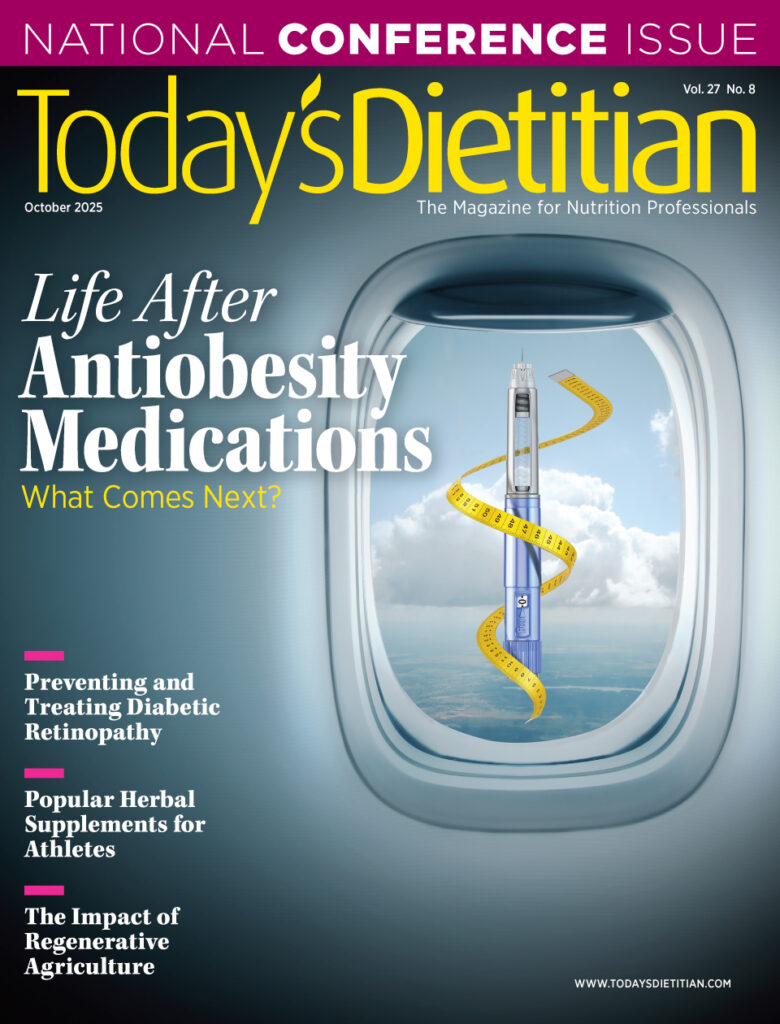Today’s Dietitian
Vol. 17 No. 4 P. 4
The most exciting news last month among nutrition professionals was the announcement of the Dietary Guidelines Advisory Committee’s (DGAC) submission of its report to the USDA and US Department of Health and Human Services (HHS) for review and public comment. The long-awaited advisory report includes scientific evidence on topics related to diet, nutrition, chronic disease, physical activity, and other health issues, which the government will use to develop national nutrition policy.
The USDA and HHS are considering this report as well as input from other experts, federal agencies, and public comment as they develop the 2015 dietary guidelines scheduled for release this fall.
What’s notable to me and many nutrition professionals is that for the first time, the DGAC addressed the issue of sustainability and sustainable eating patterns to help preserve human and natural resources for future generations. Sustainable diets were defined as eating patterns that promote health and well-being such as a Mediterranean or healthful vegetarian diet vs an animal-based diet, which has a greater environmental impact. According to the report, global production of food is responsible for 80% of deforestation, more than 70% of fresh water use, and up to 30% of human-generated greenhouse gas emissions. These are dire statistics, so if we don’t take the necessary steps to reduce these percentages, there may not be enough food and natural resources for our great-great grandchildren.
The report states that new policies must be developed and implemented and core values embraced before a sustainable food system can be established. And consumers and supply-chain participants from farm to plate must buy into the whole notion of sustainable practices and do whatever a sustainable system requires. To be sure, getting everyone on board may be a huge challenge, but dietitians can begin to effect change by educating both clients and patients about nutrition and healthful, sustainable eating patterns. They can encourage foodservice institutions and the food industry to offer more healthful foods. And they can get involved with policymaking at the local and national level to help develop nutrition education programs, including the Supplemental Nutrition Assistance Program and the National School Lunch and WIC Programs.
Let us know what you think about the 2015 DGAC report on Facebook and Twitter. And please enjoy the articles in this issue on the pescetarian diet, tofu, organics, and antibiotics in meat.
Judith Riddle
Editor
TDeditor@gvpub.com


